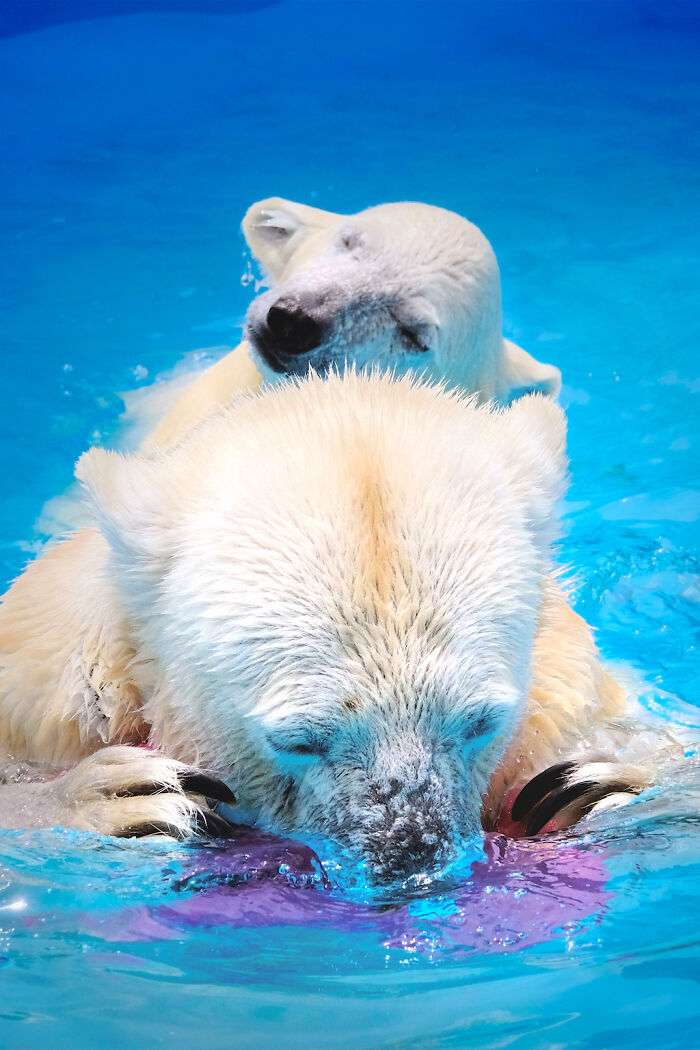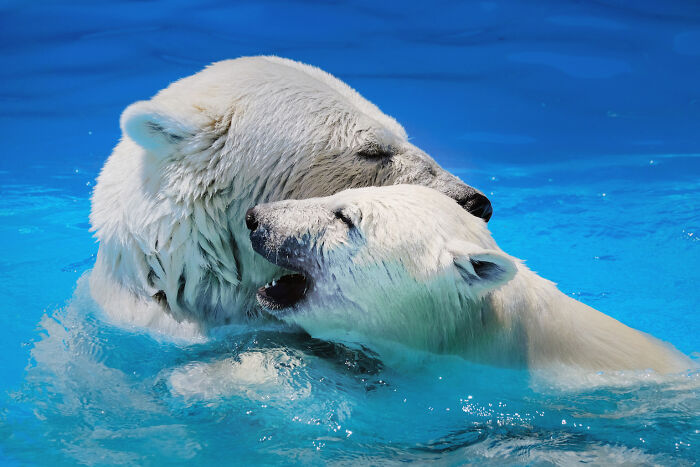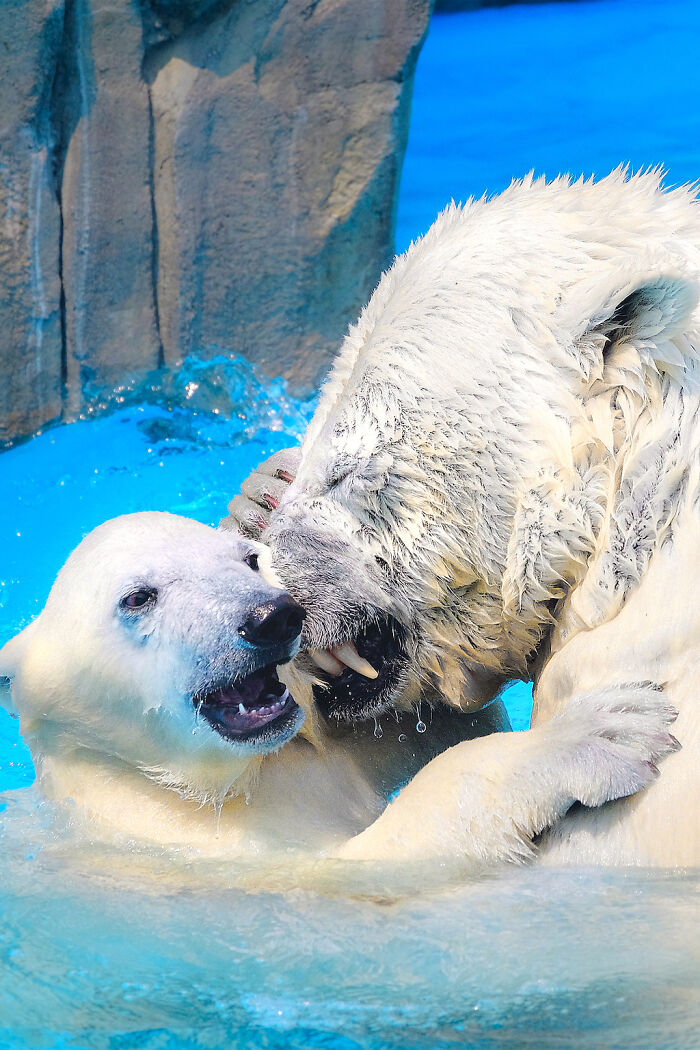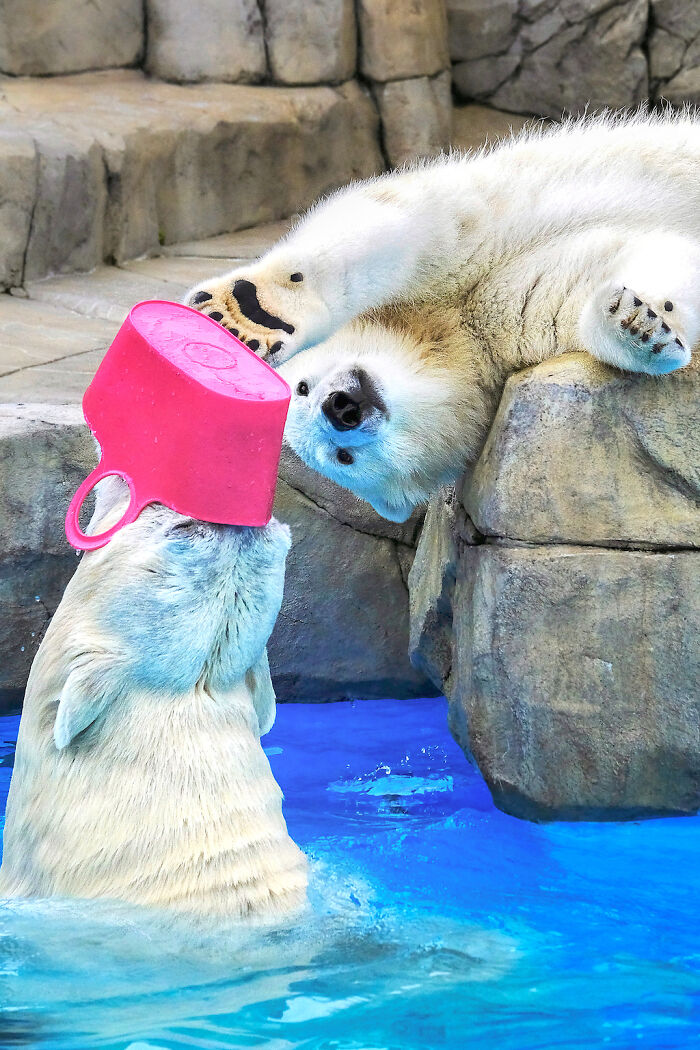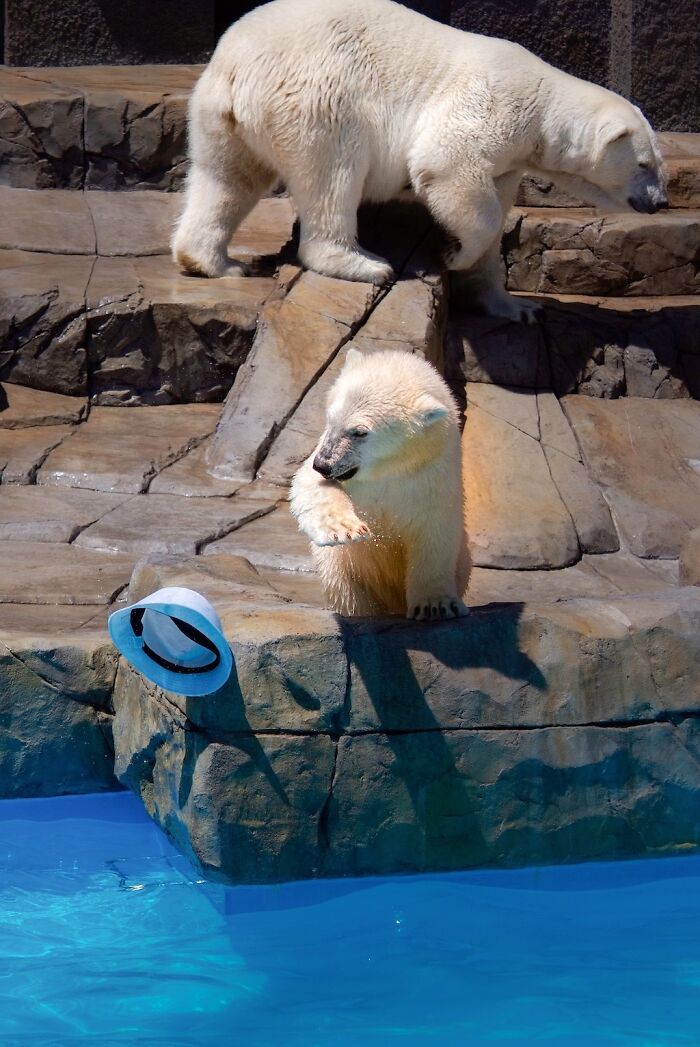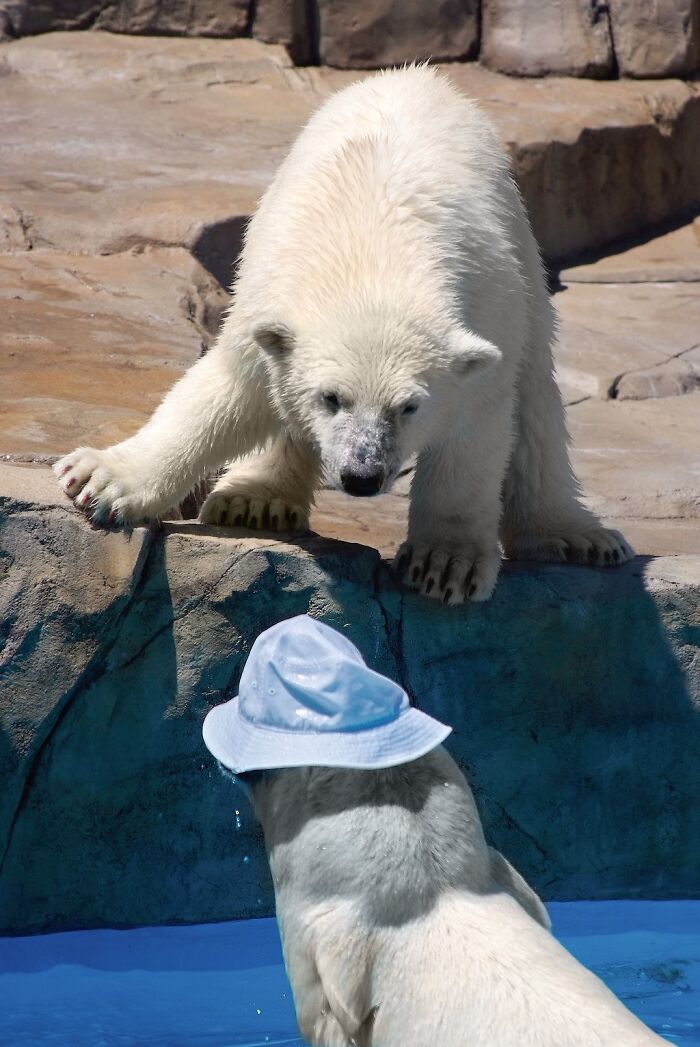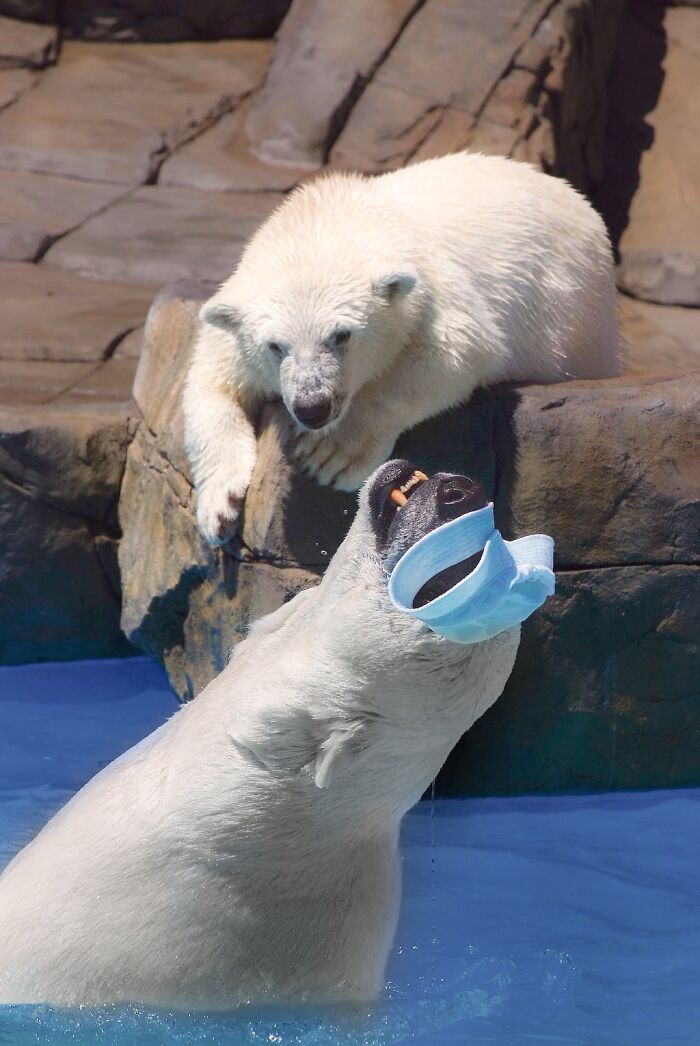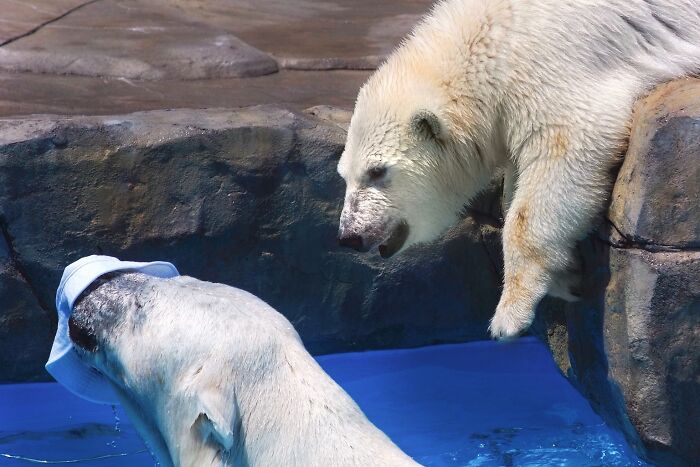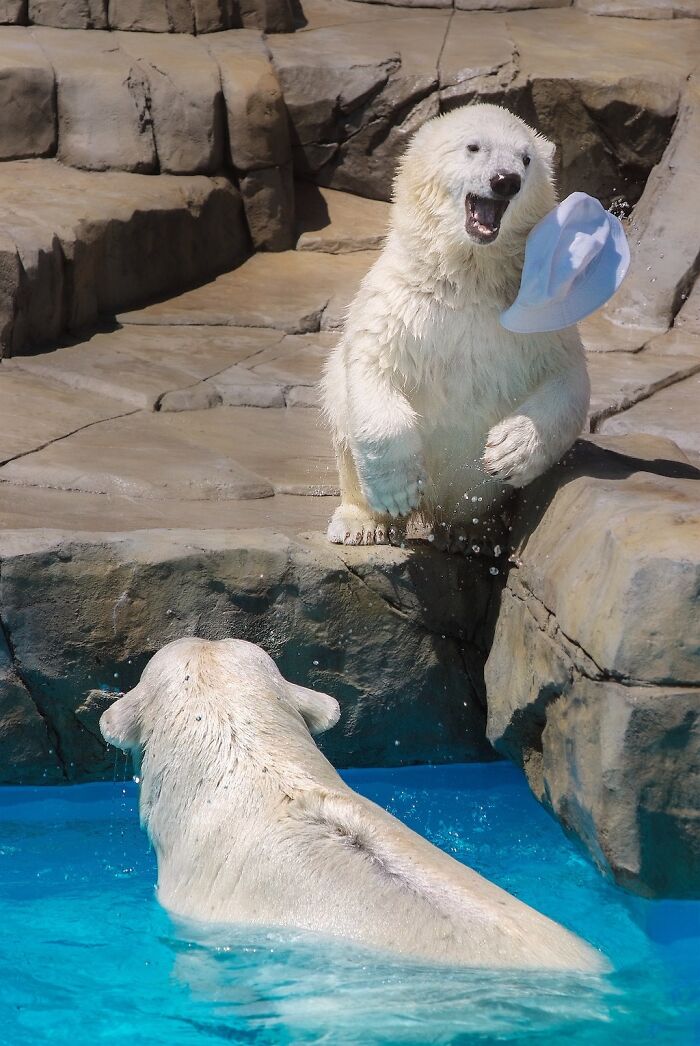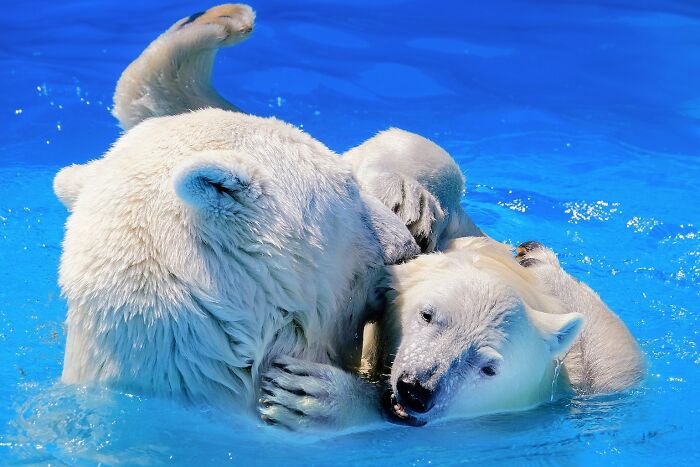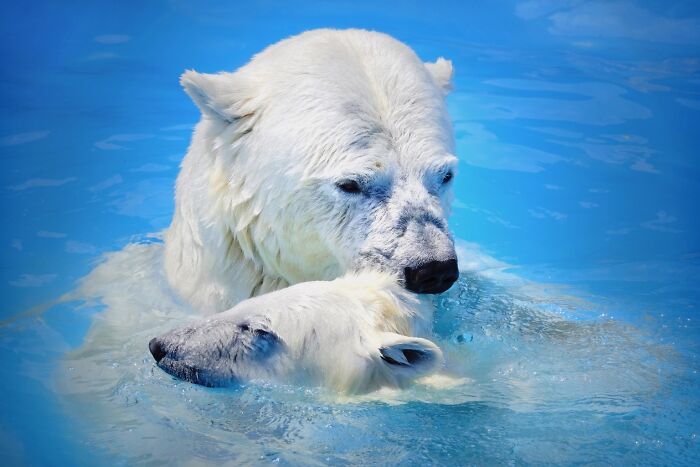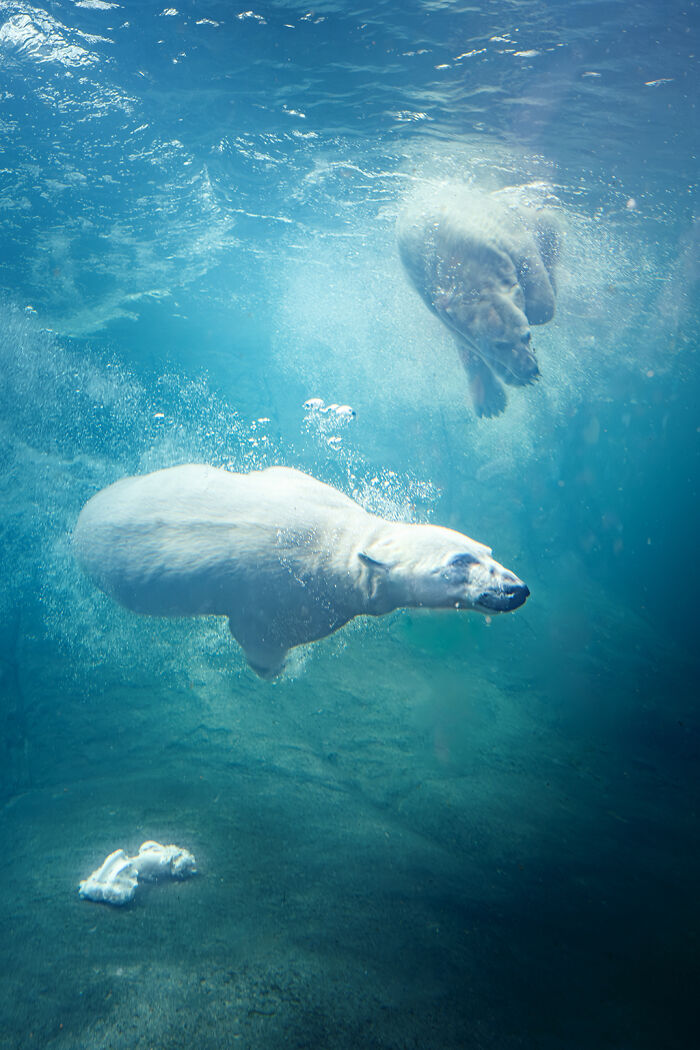Polar bears are mother bears that raise their cubs; father bears do not help raise them. The parent-offspring relationship is also limited, lasting only about five years. More info: Facebook | Instagram
Carrying a child on her back
Share icon I concentrated on zoo photography as a zoo photographer because of the close proximity between humans and animals. It is easy to get up close and personal with animals that would be difficult to approach or encounter in the wild. However, I have always wondered if the animals kept in zoos are really happy.Among the animals in the zoo, polar bears are particularly fascinating to photograph because, very fortunately, a baby polar bear had just been born, and I was able to continue watching the mother bear and her cubs growing up and raising her young with love. Needless to say, the cubs were adorable, but I was even more fascinated by the mother bear working hard to raise them. Although the cubs are now on their own, they showed me the process of their growth from birth to becoming full-fledged adults. I feel that this is what made polar bear photography so appealing.
Embrace
Share icon
Parent-child struggle
Share icon To capture authentic moments of polar bears despite the artificial environment of a zoo helps the close proximity between humans and animals. Polar bears are no exception to this, and this is a distance between humans and bears that is impossible in the wild. Even though the distance is close, the bears are free to act as they wish because their personal space is well secured from each other. They are not pets, so they do not behave as humans expect them to, but we can catch a glimpse of their natural behavior.
Mother bear luring children with a toy
Share icon
Happening
Share icon Polar bears in the wild basically act alone. However, the photo shown here is of a mother bear and her cubs in a family photo, as they are raising their cubs.Father bears do not participate in the raising of polar bear cubs. This is true even in the wild, and male polar bears are even dangerous to their cubs.All the photos except the last one show a mother bear raising her cubs, especially a mother bear teaching her cubs how to swim. At first, the cubs were hesitant to even enter the water. When the cubs gradually became accustomed to the water, the mother bear began to give them swimming lessons. However, the teaching method was spartan. The lessons were so strict that the cubs ran away, didn’t like it, or were afraid of it. In contrast, the mother bears managed to entice the cubs to come into the pool. Their affection and individuality can be seen in such interactions.
Mother bear wearing a hat
Share icon
She does not give a hat to her cub
Share icon It is impossible to completely recreate a natural habitat in a zoo. However, based on environmental enrichment, we will give as much consideration as possible to the animals. The main actors are not humans, but the animals living in the zoo. Humans are merely being shown the way. In order to create a natural habitat in a zoo, it is essential to raise awareness on the part of humans and create an environment based on this awareness.
A bear cub curious about a hat
Share icon
A hat blown up by the wind
Share icon This mother bear is an experienced mother who has given birth to and raised eight cubs so far. The cub in the photo is the eighth and final cub. She was very spoiled, but the mother bear raised her cubs with great affection.Nowadays, there are sad cases of abandonment of children in the human world, but this is not the case at all. She raised him well. In that respect, it doesn’t matter to me whether the bear was raised in the wild or in a zoo. I was moved by the love a mother pours into her child.I would be happy if my photographs conveyed that, even if only a little.
Hug
Share icon
A bear cub completely defeated by her mother
Share icon Polar bears in zoos may be happy in a sense.I hope that people will think about the reality that the environment in which polar bears live in the wild is getting worse year by year, so much so that they may think so.
Several years later
Share icon Anyone can write on Bored Panda. Start writing! Follow Bored Panda on Google News! Follow us on Flipboard.com/@boredpanda!
